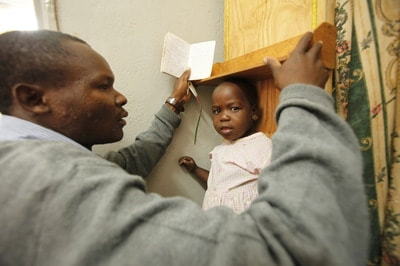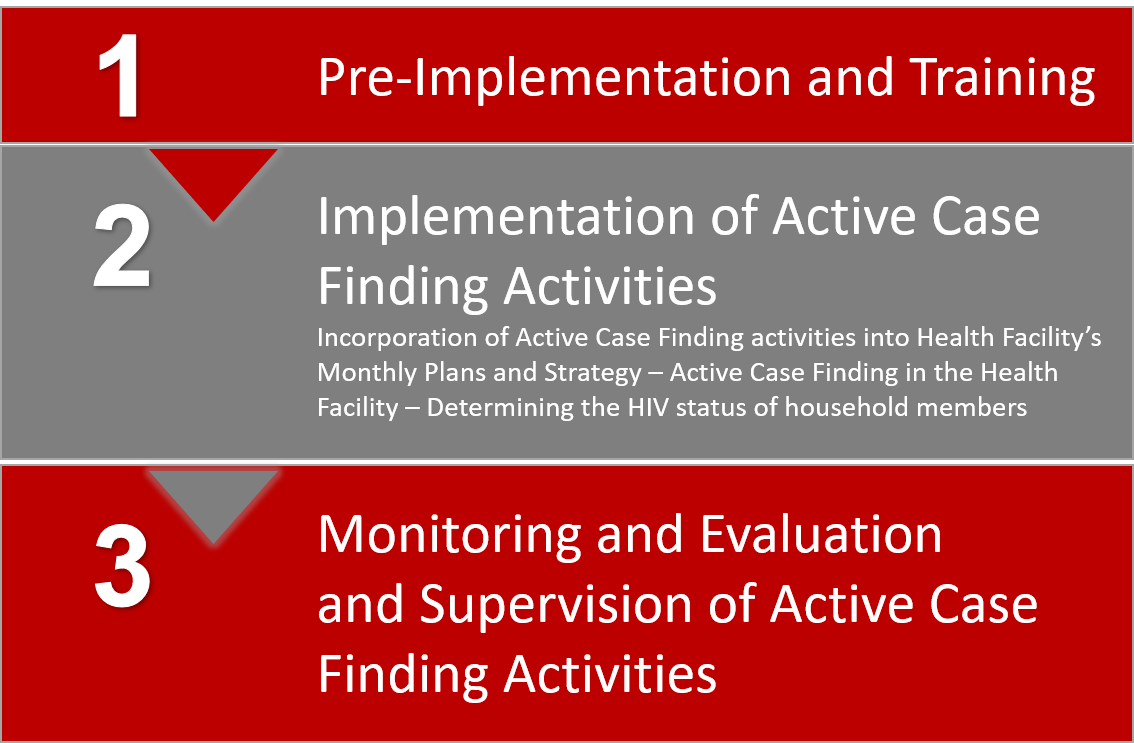Active Case Finding in Health Facilities
|
Standard Operating Procedure Summary |
Featured Case Studies |
Tools and Forms
|
Active Case Finding Site Assessment Tool: The tool is designed to be used during the pre-implementation workshop to help health facilities understand their current ACF activities, their gaps in providing those services and how featured tools can help to supplement their existing strategy.
Active Case Finding Workshop Package: This package is designed to teach health workers to implement active case finding strategies into their facility with a focus on provider-initiated testing and counseling (PITC) using the PITC Register and corresponding PITC Monthly Report. The package consists of an agenda, a presentation, a brief SOP on how to implement PITC, a handout of exercises to practice filling the register and monthly report, the PITC Plan of Action (POA) tool (see Case Study 1) and an exam. Health Talk Procedure and Topics: Health talks are 20- to 30-minute patient education sessions, usually presented by a CHW or HDA while a group of patients is waiting to see a clinician or nurse. A health talk can be a great opportunity to educate patients on the benefits of HIV testing, discuss the HIV services available at the facility and dispel common myths and misconceptions about HIV testing. An example health talk and tips can be seen in the PITC Health Talk Case Study. HIV Diagnostic Assistant (HDA) Training: This curriculum is designed to provide HDAs with the knowledge to implement and support key HIV services, including provider-initiated testing and counseling (PITC) and linkage to HIV care and treatment. |
PITC Register and Monthly Report: These tools were designed to be used in in-patient wards which do not keep a record of every patient’s HIV status, although they can be adapted for use in any department. There are two versions of the PITC Register, one for adults and one for pediatrics. Used with the PITC Monthly Report, a reporting tool for collecting data on key indicators, a program can easily track testing activities within a facility. For an example of how this is used in our program, refer to the Active Case Finding Case Study 6.
Client Tracing Tools: These tools are designed to support the CHW organize and report on client tracing efforts, regardless of the reason for tracing. In the case of ACF strategies, CHWs can use them to manage patients that request home-based testing for untested household members. The Client Tracing Form provides a document to record the client’s locator information, tracing attempts and final tracing outcome. The CHW Client Tracing List helps the CHW manage and track all his/her clients that require tracing and their current tracing status. Community Health Worker Training Curriculum: This curriculum is designed to provide CHWs with the knowledge needed to perform any activity in this toolkit. It is recommended that all CHWs receive the full training. If that is not possible, it is recommended to specifically look at: Unit 2: Overview of HIV Prevention, Unit 3: HIV Signs and Symptoms, and Unit 4: HIV Diagnosis. |


